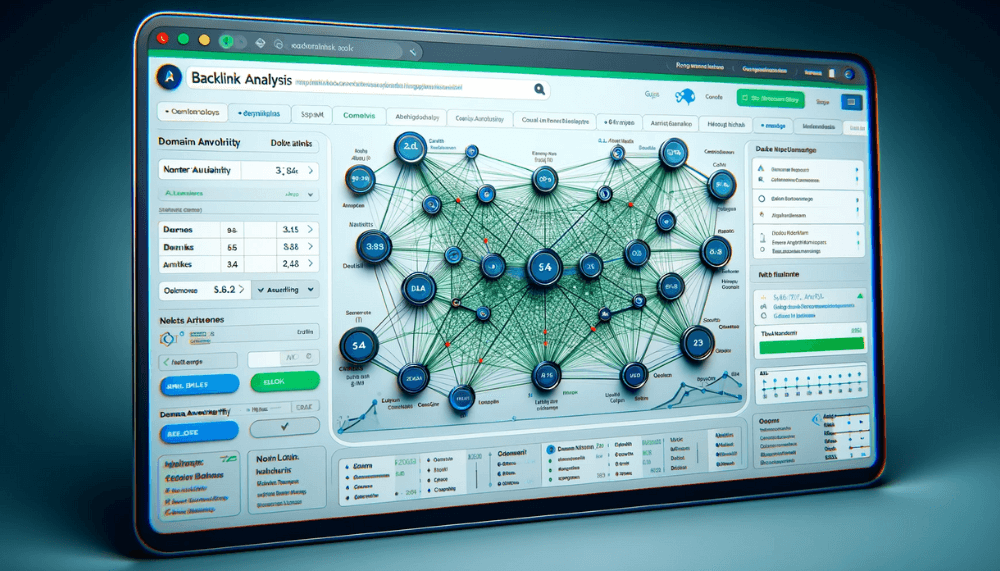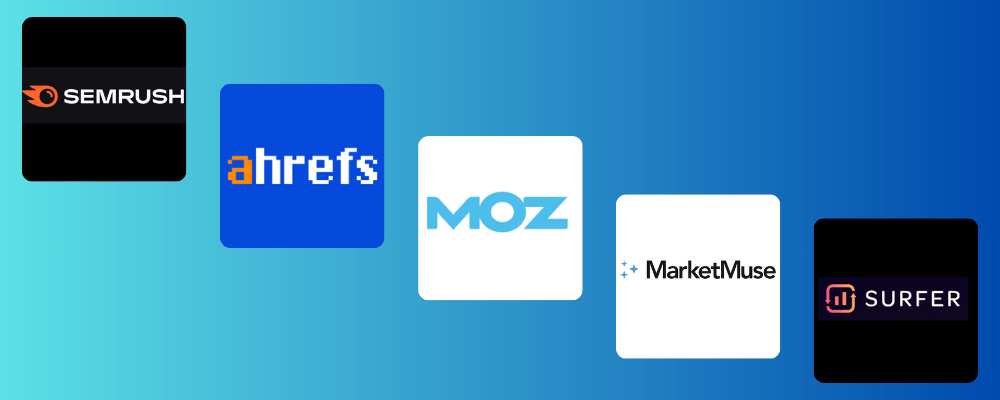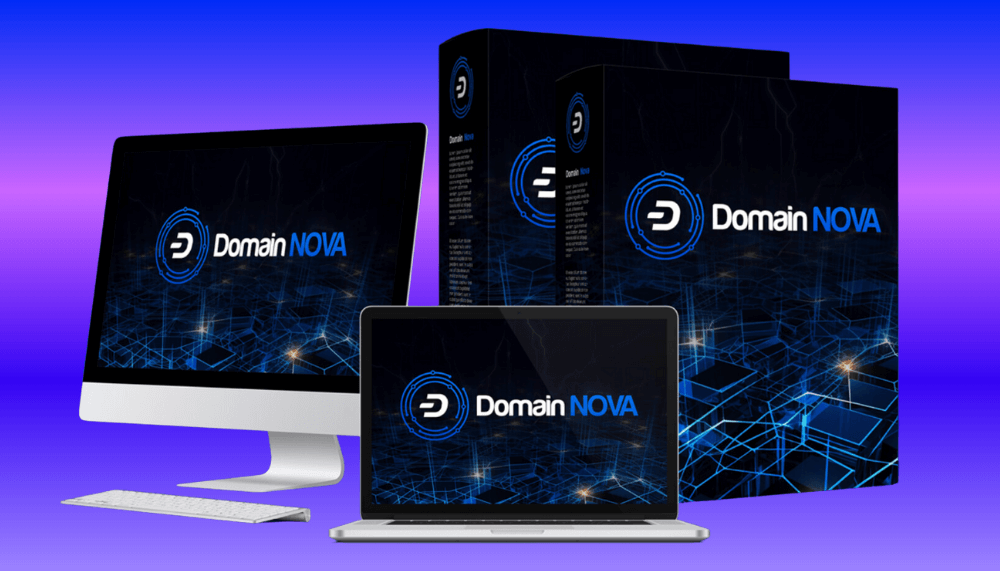
Hey,
Do you want to know about “Scalable SEO Software?” It is quite difficult to find out the effective SEO tools solution. But if you follow Dremda’s post, it will be very easy for you to make the best solution. I am Dr Emda, a passionate digital marketer over years, with my team here. We are going to explore the process step by step in this post.
In today’s online world, SEO is key to being seen. Think of SEO as a guide leading people to your website. It makes you stand out on the crowded internet. Here, tools suggested by Dremda, with scalable SEO software and AI, play a big role.
Scalable SEO software helps your site grow without losing speed or quality. It’s like a smart helper that changes as your business gets bigger. It keeps you at the top of search results.
Dremda suggests clever SEO tools that are easy to use. They mix growth-friendly features with smart AI. So, whether you’re experienced or new, these tools light the way in the SEO journey, making it easier for everyone.
So, let’s get started and unravel the scalable SEO Software!
Table of Contents
Understanding SEO: The Basics

Introduction to SEO and Its Importance
SEO stands for Search Engine Optimization. It’s like a special trick that makes websites easier to find on the internet. When you use SEO, your site can appear higher up in search results on sites like Google.
This is really important. It means more people can find your website. Imagine SEO as a big, bright sign on the internet. It’s like it’s saying, “Hey, look over here and visit us!”
Explanation of SEO
What is SEO?
SEO, short for Search Engine Optimization, is like a helper for your website. It works to make your site show up higher on Google’s search list. Think of it as a game where you guess the words people use in Google to find things.
These special words are called ‘keywords’. When you know these keywords, you can make your website more interesting for people who are looking for what you offer.
Here’s how it works: First, you discover the popular words people search for. Next, you use these words in your website’s articles, posts, and information.
This makes your site easier to find on Google. It’s like leaving a trail of breadcrumbs for people to follow on your website.
The cool part? When you do SEO right, more people who are curious about what you have come to your website.
They find exactly what they were looking for, and your site gets more visitors. This is super important because it means more people get to see what you have and might become your customers or fans.
Why is SEO Important?
SEO is super important for your website. Why? Because most times, when people go online, they start by using a search engine like Google.
If your website appears at the top of their search results, it’s like being the first shop they see in a big mall. Just like the first shop gets the most customers, your website will get more visitors.
Here’s how it works: When your website ranks high on Google, it’s easier for people to find it. It’s like having a big, bright sign that points right to your site. This means more people clicking on your website, just like more people walking into a well-placed store.
So, SEO helps put your website in the spotlight. It’s like giving your site a front-row seat on the internet. When people search for something you offer, your site is one of the first they see.
This is great because more visits to your site can mean more people interested in what you’re sharing or selling.
Significance of SEO
Improves Website Visibility
SEO makes your website more visible. This means more traffic and opportunities to convert prospects into customers.
Builds Trust and Credibility
If a website is at the top of search engine results, people think it’s really good and reliable. This matters a lot. It helps make your business seem more trustworthy and credible.
Better User Experience
SEO isn’t just about getting to the top of search results. It’s also about making your website fast, easy to use, and nice to look at.
When a website is well-organized and clear, visitors want to stay longer. This means they leave less quickly and look at more pages.
Key Components of SEO:
Keywords: The Starting Point
What are Keywords?
Keywords are words or phrases that people type into search engines. They are the building blocks of SEO. If you use the right keywords, you can show up in searches that matter to your audience.
Better User Experience
To research keywords, you find out what words people use when searching online. They might be looking for products or services like yours.
Tools like Google Keyword Planner help you find these words. This helps you understand your customers better. You learn what they type in search engines.
Then, you can use these words on your website or ads. This makes it easier for customers to find you.
Content: The Heart of SEO
Importance of Content
Content is what users come to see and is crucial to SEO. Good content can keep your audience engaged and help your website rank higher.
Types of Content
This includes web page text, articles, blog posts, videos, podcasts, and social media posts. Fresh, unique, and engaging content is favored by search engines.
Backlinks: SEO Endorsements
Understanding Backlinks
Backlinks are links from other websites to yours. They are like votes of confidence from one site to another and are crucial for SEO.
Building Backlinks
To get more backlinks, you can create really good content that others want to share. Working with popular people online, known as influencers, is another way.
They can mention your website. Also, writing posts for other websites, called guest blogging, helps too. This is how you get more websites to link to yours.
Each link is like a vote for your website, making it more popular. This way, more people can find and visit your website.
The Evolution of SEO Over the Years:
Early Days of SEO
Beginnings in the 1990s
SEO started in the 1990s when search engines emerged. Initially, SEO was about adding keywords and meta tags to websites to help them rank higher.
Keyword Stuffing Era
In the early days, more keywords meant a higher ranking. Websites would overload their content with keywords, often sacrificing quality.
Search Engine Updates
Google’s Algorithms
Search engines, like Google, keep updating to give better results. They now penalize sites for using too many keywords, called ‘keyword stuffing’.
Instead, they reward sites with good content and easy-to-use features. This makes search results more helpful and relevant for users. Websites with quality content get a better chance to be seen.
Focus on Quality Content
These updates changed what is important for a website. Now, making useful and related content is key. Also, having a website that is easy for people to use is important.
These changes mean websites should focus on being helpful and simple for visitors. This helps websites get noticed by search engines like Google.
Modern SEO: A Holistic Approach
User Experience (UX)
Today, SEO is not just about keywords or content alone. It’s about the overall user experience, including site speed, mobile-friendliness, and intuitive navigation.
Voice Search and AI
As voice search and AI became popular, SEO changed too. Now, SEO understands searches that sound like everyday talking. It also provides search results that are more tailored to each person.
This means when people use voice search or AI, they get results that feel more personal and natural. SEO’s goal is to match these new ways people search with the right results.
The Future of SEO with Scalable SEO Software
Emphasis on AI and Machine Learning
The future of SEO is about using AI and machine learning. These tools help understand what users really want when they search. They make search results more personal.
This means when you search for something, the results will fit what you need better. SEO will get smarter at giving you exactly what you’re looking for.
Continuous Adaptation
SEO will keep changing over time. It’s important to keep up with new trends and changes in rules, called algorithms. If you want to do well in SEO, you need to stay informed.
This means always learning about the latest updates. Doing this helps you make better strategies for your website’s SEO.
Learning SEO is an ongoing thing. It’s like keeping up with a language that always changes. You need to stay updated and adjust to these changes.
The main point of good SEO is to meet what your audience needs. Give them content that is useful and easy to get to.
When you focus on these basics, you’re doing more than just SEO. You’re making your website better for your users. And that’s the real goal of SEO. Read more about Digital marketing specially SEO on Dremda’s blog.
The Rise of Scalable SEO Software

In digital marketing, SEO is key to success. New scalable SEO software is changing things. It helps businesses grow online. This article explains this software.
We’ll see why it’s great for businesses. It adapts as they grow. We’ll look at how it helps companies get noticed. It’s important for all types of businesses.
Understanding Scalability in SEO
Scalability is a big word in the SEO world. It means being able to change and improve SEO plans as a business gets bigger. This is super important as the online world keeps changing.
Think of it like a video game. As your business levels up, your SEO strategies need to level up too. This way, your business stays strong and keeps growing in the busy digital world.
It’s like having tools that grow with your business, making sure you’re always ready for the next challenge. This flexibility is key for any business that wants to succeed online.
The Advent of Scalable SEO Software
The growth of scalable SEO software is a big deal in digital marketing. This change started when businesses wanted better ways to deal with complex online stuff.
Scalable SEO tools came as a great solution. They bring things like automation, detailed data study, and features you can change as needed.
Think of it like this: As the internet got more complicated, these tools helped businesses keep up. They’re like smart helpers that adjust to what each business needs.
This makes managing online presence easier and smarter for companies. These tools are really helpful for anyone trying to grow their business online.
The Role of AI in SEO Scalability
Artificial Intelligence (AI) has really changed the game in SEO. AI tools in SEO can look at a lot of data. They can guess future trends and give smart tips.
This helps businesses make better decisions based on data. These tools keep up with changes in how search engines work. This way, businesses can stay on top in SEO.
It’s like having a super-smart assistant that knows what’s going to happen next online. This assistant helps businesses stay one step ahead of others.
AI makes sure businesses use the right strategies in the ever-changing online world. This is super important for staying popular and visible on the internet.
Supporting Business Growth with Scalable SEO Software
Scalable SEO software is really important for growing a business. It helps companies keep their SEO good while they grow online. These tools work for all businesses, big or small.
They adjust to fit the business’s size and what it needs. For example, a small startup and a big company can both use these tools effectively. This is because the tools can change as the business grows.
They make sure that the business’s online part stays strong, no matter how big it gets. This is key for businesses wanting to get more attention on the internet.
Key Features of Scalable SEO Software
- Automated Keyword Research: Discovering relevant and high-impact keywords becomes effortless.
- Content Optimization: Tools assist in creating SEO-friendly content that resonates with both search engines and audiences.
- Backlink Analysis: Monitoring and managing backlink profiles to bolster site authority.
- Performance Tracking: Real-time tracking of SEO metrics to gauge effectiveness.
The Impact of Scalable SEO on Small and Medium Enterprises (SMEs)
For small and medium-sized businesses, scalable SEO software is a game-changer. It’s like giving them superpowers to compete with big companies. These tools help smaller businesses show up better online.
This makes it easier for them to get noticed and compete. By using SEO tools, even small businesses can stand out on the internet, just like the larger ones. This levels the playing field, making it fair for all businesses, big or small.
Customizing SEO Strategies with Scalable SEO Software
Customization is really important in Scalable SEO Software. These software let businesses make their own unique SEO plans. They can focus on their specific goals and the type of people they want to reach.
It’s like picking the right tools for a special project. Each business can use these SEO tools in a way that works best for them and their audience. This means they can create strategies that are perfect for their particular industry and the people they want to attract.
The Future of SEO: Trends and Predictions
The future of SEO is really exciting. It’s all about using AI and machine learning. These are smart technologies that learn and get better over time. They will help create even cooler SEO tools.
These new tools will be smarter and change to fit what you need. They will use advanced analytics, which is like having a super-smart helper to make your website better. This means SEO will keep getting more advanced and helpful for everyone.
Case Studies: Success Stories with Scalable SEO Software
Let’s talk about how scalable SEO software has really helped businesses. There are stories of companies that grew a lot because of it. These are called case studies. They show us how using the right SEO strategies can lead to big success.
These success stories prove that scalable SEO software works well. It’s like seeing a before-and-after of a business, showing how much they improved with the help of this software. These examples help us understand the power of good SEO tools in the real world.
Case Studies: Success Stories with Scalable SEO Software
Choosing the right SEO software is like picking the best tool. First, think about what your business really needs. Next, look at your budget. How much can you spend? Find features that help meet your SEO goals. You need to balance a few things.
One, can the software grow with your business? Two, is it easy to use? Three, is the price okay for you? The goal is to get a tool that’s just right. It should fit your business, be affordable, and easy to use as your business gets bigger.
Implementing Scalable SEO Software: Best Practices
To use scalable SEO software well, you need a good plan. Start by doing lots of research. Know what you’re dealing with. Then, get some training. Learn how to use the software. Keep an eye on how things are going.
Check your website’s performance often. Use what you learn to make better strategies. It’s like playing a video game. First, you learn the rules. Then you play and get better by seeing what works.
Examples of Scalable SEO Software
When we talk about SEO, or making websites show up better in search engines like Google, scalability is super important.
Scalability means the SEO tools can grow and change as a business does. Imagine your favorite video game – as you get better, the game gets more challenging.
Scalable SEO Software works like that. They become more advanced as your business grows. Let’s talk about some tools that are great at this.
Examples of Scalable SEO Software: SEMRUSH
SEMRUSH is like a Swiss Army knife for SEO. Whether you’re just starting or running a big company, SEMRUSH has lots of features. It can help you find the right words to use on your website and check how your site is doing.
Examples of Scalable SEO Software: ahrefs
Another example of Scalable SEO Software is ahrefs. Think of ahrefs as a detective for websites. It helps you understand what your competitors are doing and shows you ways to do things better on your site.
Ahrefs is really helpful for any kind of business, big or small. It gives you reports with a lot of details. But the good thing is, these reports are simple to understand.
It’s like getting a report card that’s easy to read. Ahrefs is awesome for people who want to learn about their website. It doesn’t use hard technical words, so it’s not confusing.
You can understand what’s going on with your website easily. This is why ahrefs is a great choice, even if you’re new to all this website stuff.
Examples of Scalable SEO Software: MOZ
MOZ is another cool Scalable SEO Software that’s easy to use. It’s like having a friendly guide in the world of SEO. MOZ is perfect for people just starting. It breaks down complex stuff into simple ideas.
With MOZ, you can make your website better, even if you’re not an SEO expert. It teaches you in a way that’s easy to understand, so you can improve your website step by step.
All these tools – SEMRUSH, ahrefs, and MOZ– are examples of Scalable SEO Software. They start simple but can get advanced, making them perfect for any business, big or small. These tools make your website more visible on search engines like Google.
This is important. When more people see your website on Google, it’s better for your online success. It’s like getting your website in the spotlight where everyone can see it.
In short, scalable SEO Software is like growing with a video game. They start easy but can handle more complex stuff as you or your business grows. This way, they stay helpful no matter how big your business gets.
Artificial Intelligence in SEO: Transforming Digital Marketing

Artificial Intelligence (AI) in SEO is like having a super-smart helper for your website. It uses advanced technology to make your site better for search engines and people.
AI looks at how search engines work and suggests changes. This helps your website rank higher in search results.
Benefits of Using AI for SEO Strategies (Scalable SEO Software)
- Smarter Keyword Choices: AI tools (Scalable SEO Software) are great at finding the best keywords. They pick words people use most often in their online searches.
- Content that Works: AI helps write or improve website content. It ensures your content is what search engines and readers like.
- Saves Time with Automation: AI can do repeat tasks fast. This saves you time to focus on other things.
- Better User Experience: AI understands how visitors use your site. It then suggests how to make their experience better.
- Staying Ahead: AI (Scalable SEO Software) can guess future trends. This helps your site stay current and attract more visitors.
Real-world Applications and Case Studies of Scalable SEO Software
- Chatbots for Instant Help: Websites use AI chatbots to talk to visitors. These chatbots answer questions and guide users, improving their experience.
- Voice Search Optimization: AI helps sites get ready for voice searches. It tweaks your site so people using voice search can find it easily.
- Case Study: A Fashion Brand’s Success: A fashion brand used AI for its website. They saw their online sales jump by 50%. This happened because their site started showing up higher in search results.
In-depth Analysis of AI Scalable SEO Software

Some renowned and best AI Scalable SEO Software are stated here with in-depth analysis. These tools are SEMRUSH, ahrefs, MOZ Pro, Clearscope, MarketMuse, Surfer SEO, CanIRank, BrightEdge, PaveAI, and Frase. Features, advantages, limitations, and user feedback are described below.
SEMRUSH
- Features: Keyword research, site audit, competitor analysis.
- Advantages: Comprehensive toolset, great for competitive intelligence.
- Limitations: Can be overwhelming for beginners.
- User Feedback: Users appreciate its extensive features but note a steep learning curve.
Ahrefs
- Features: Backlink analysis, keyword research, site audit.
- Advantages: Strong backlink analysis capabilities.
- Limitations: Less detailed keyword difficulty scores compared to competitors.
- User Feedback: Highly favored for link-building strategies, though some find it pricey.
MOZ Pro
- Features: Keyword research, link analysis, site audits.
- Advantages: User-friendly, with excellent customer support.
- Limitations: Data updates can be slower than competitors.
- User Feedback: Users like its ease of use and community resources but desire faster data updates.
Clearscope
- Features: Content optimization, keyword research.
- Advantages: Excellent for improving content relevance.
- Limitations: Primarily focused on content, lacks other SEO features.
- User Feedback: Users love its content suggestions but wish for more comprehensive SEO tools.
MarketMuse
- Features: Content planning and optimization, keyword research.
- Advantages: AI-driven content strategies.
- Limitations: Can be expensive for small businesses.
- User Feedback: Appreciated for its in-depth content analysis, though cost is a consideration for some.
Surfer SEO
- Features: On-page SEO optimization, content editor.
- Advantages: Great for real-time content optimization.
- Limitations: More focused on on-page SEO, less on off-page factors.
- User Feedback: Users enjoy its ease of use for on-page content optimization.
CanIRank
- Features: SEO recommendations, competitive analysis.
- Advantages: Provides actionable recommendations.
- Limitations: Not as comprehensive in features as larger platforms.
- User Feedback: Good for small businesses looking for straightforward advice.
BrightEdge
- Features: Real-time tracking, and content optimization.
- Advantages: Advanced data analytics.
- Limitations: Better suited for larger businesses due to complexity and cost.
- User Feedback: Favored by enterprises for their detailed analytics and reporting.
PaveAI
- Features: Google Analytics integration, data analysis.
- Advantages: Turns analytics into actionable SEO insights.
- Limitations: Relies heavily on existing Google Analytics data.
- User Feedback: Users like how it simplifies analytics data, though it requires a good understanding of Google Analytics.
Frase
- Features: Content optimization, AI-driven content creation.
- Advantages: Useful for generating and optimizing content.
- Limitations: More focused on content than other SEO aspects.
- User Feedback: Users appreciate its help in content creation, though some note limitations in SEO functionality.
Integration of Scalable SEO Software and AI Tools
How Scalable Software and AI Tools Work Together
Scalable SEO software and AI tools are like partners in digital marketing. Scalable software grows with your business, handling more work as you expand.
AI tools, on the other hand, are like smart brains. They learn from data and make smart suggestions. Together, they create a powerful tool.
They help businesses manage their online presence more effectively. It’s like having a super-smart assistant that also grows with your company.
Benefits of Integration for Businesses of Different Sizes
- For Small Businesses: This integration means even small players can compete with big ones. They can use AI to find the best keywords and optimize their content, without needing big budgets.
- For Medium-sized Businesses: These tools help them manage more complex SEO strategies. They can handle more website traffic and more detailed data.
- For Large Corporations: They benefit from advanced AI analysis. This can predict trends and automate big parts of their SEO work.
Practical Tips and Strategies for Using Scalable SEO Software
Step-by-Step Guide on Implementing Scalable SEO Software
- Understanding Your Needs: First, figure out what your business needs in terms of SEO. Are you a small blog or a big e-commerce site?
- Choosing the Right Tools: Pick tools that match your needs. For a small site, maybe a simple AI tool is enough. For a big site, you might need more advanced features.
- Setting Up: Install the software. Follow the guide or get help if it’s tricky.
- Learning the Basics: Start with basic features like keyword research and content analysis. Watch tutorials or read guides.
- Advanced Features: As you get comfortable, explore more advanced features like trend prediction or automated content optimization.
Common Pitfalls and How to Avoid Them
- Over-reliance on AI: AI is smart, but it’s not perfect. Always review its suggestions.
- Ignoring SEO Basics: AI can’t fix everything. Make sure your website is fast and mobile-friendly.
- Not Keeping Up-to-Date: SEO changes fast. Keep learning and updating your strategies.
Tips for Beginners and Advanced Users
For Beginners
- Start small. Focus on one or two key features.
- Use AI suggestions for keywords and simple content improvements.
For Advanced Users
- Experiment with predictive analytics for market trends.
- Automate more tasks to save time.
Future Trends in AI and Scalable SEO Software
Emerging Trends in AI and Scalable SEO Software
- Voice Search Optimization: More people are using voice assistants like Siri and Alexa. This means SEO needs to focus on how people talk, not just how they type.
- AI for Personalized Experiences: Websites will use AI to show visitors what they’re most likely to be interested in, based on their past behavior.
- Machine Learning for Better Insights: AI tools will get smarter at understanding what changes can improve a website’s SEO.
Predictions for the Future of Digital Marketing
- Integration of AI in Content Creation: AI might soon help write or suggest changes to online content.
- SEO for Augmented Reality (AR) and Virtual Reality (VR): As AR and VR become popular, SEO strategies will need to adapt to these new formats.
- Greater Emphasis on User Experience (UX): Google already values UX, and AI will play a big role in making websites more user-friendly.
For Advanced Users
- Stay Updated with SEO and AI Advancements: Always keep learning about new trends and tools.
- Invest in AI Tools: Using AI tools for SEO can give businesses a big advantage.
- Focus on Quality Content: AI can suggest improvements, but original and high-quality content will always be king.
Choosing the Right Scalable SEO Software for Your Business
Factors to Consider When Selecting SEO and AI Tools
- Your Business Goals: Understand what you want to achieve with SEO. Is it more traffic, better rankings, or more sales?
- Features Offered: Look for tools that offer what you need. Do you need keyword research, content analysis, or backlink tracking?
- Ease of Use: The tool should be easy to understand and use, even if you’re not a tech expert.
Budget Considerations and Resource Allocation
- Understanding Your Budget: Know how much you can spend on SEO tools. There are options for all budget sizes.
- Free vs Paid Tools: Some free tools are great for starters. Paid tools offer more features but at a cost.
- Resource Allocation: Decide how much time and staff you can devote to using these tools.
Customization and Scalability Options
- Customization for Your Needs: The Scalable SEO Software should match your specific SEO needs. Can it adjust to your type of content or audience?
- Scalability for Growth: Choose tools that can grow with your business. As your site gets bigger, your SEO needs will change.
In this post, we’ve explored how scalable SEO software and AI tools are changing the game. These tools help businesses of all sizes grow online.
They make tasks like keyword research and content optimization easier and smarter. Remember, whether you’re just starting or looking to expand, these tools can be your digital allies. Embrace them to stay ahead in the fast-paced world of digital marketing.
So why wait? Dive into the world of scalable SEO and AI tools. Start exploring today and see how they can boost your online presence. It’s time to take your digital strategy to the next level!
FAQs About Scalable SEO Software
Question No. 1: What makes SEO software scalable?
Ans:
Scalable SEO software is great at changing as your business gets bigger. It can handle more work without any trouble. This software has cool features. One is automation – it does tasks on its own.
Another is data analysis – it looks at lots of info and figures out what it means. It also lets you customize things. This means you can make it work just how you need it to. So, as your business grows, this software grows with you and keeps helping in better ways.
Question No. 2: How does scalable SEO software aid small businesses?
Ans: It helps small businesses compete with larger ones by providing tools to optimize their online presence effectively and efficiently.
Question No. 3: Can scalable SEO tools replace SEO professionals?
Ans: While these tools are incredibly useful, they work best in conjunction with the expertise of SEO professionals.
Question No. 4: Are scalable SEO tools expensive?
Ans: The cost varies, but there are scalable options for businesses of all sizes, often with tiered pricing models.
Question No. 5: How often should SEO strategies be revised when using these tools?
Ans: Regularly, to ensure strategies align with evolving search engine algorithms and market trends.



![How to Ask AI a Question Effectively [ Make Human-Like Content ]](https://mdemdadulhaque.com/wp-content/uploads/2024/01/How-to-Ask-AI-a-Question.png)
Leave a Reply